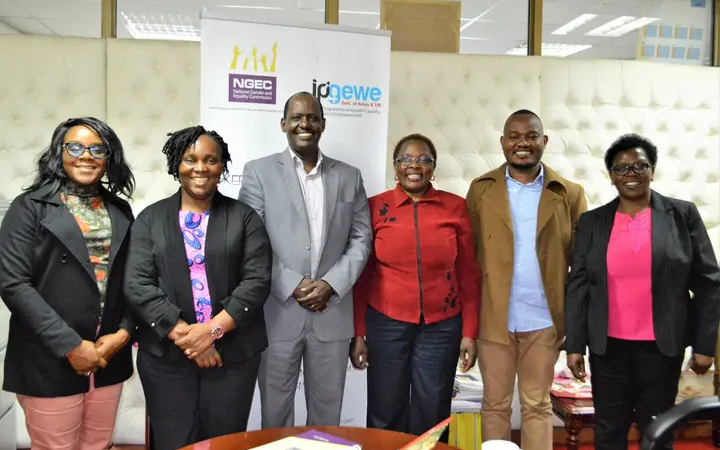Tensions have arisen at the National Gender and Equality Commission (NGEC) following claims that it disregarded recruitment regulations and procedures in appointing its Secretary and CEO.
There are also accusations that the Commission deliberately limited access to the recruitment process by not advertising the position in prominent national newspapers, as mandated by the law, preventing potential applicants from participating in the process.
The Commission also faces allegations of nepotism, with claims that favoritism influenced staff hiring decisions made by senior management and commissioners.
Concerning the chief officer role, allegations of conflicts of interest have surfaced, citing the failure to publish the job advert in two major daily newspapers and a general disregard for the established guidelines.
Instead, the Commission advertised on its website for the Secretary/Chief Executive Officer under the reference NGEC/HR/1/1/2024 for one post on a contractual basis.
The advertisement outlined that eligible candidates should be Kenyan citizens with a degree from a recognized university, alongside a minimum of ten years of leadership experience.
Candidates were required to have experience in public administration and to comply with the integrity requirements specified in Chapter Six of the Kenyan Constitution, 2010.
Dr. Purity Ngina, recently appointed as the Commission’s CEO, meets the outlined criteria, boasting ten years of leadership experience and expertise in public administration.
According to available documents, Dr. Ngina highlighted her decade-long career in education and policymaking.
The records revealed that Ngina left Strathmore University in 2020 after four years of teaching to pursue educational research at Zizi Afrique Foundation, focusing on 21st-century skills for youth.
In her role as a Regional Manager at Zizi Afrique Foundation, she oversaw a team of 35 professionals across Kenya, Uganda, and Tanzania to promote evidence-based policy in the education sector.
Ngina holds a Bachelor’s degree, a Master’s in Applied Mathematics from Egerton University, and earned a PhD in Biomathematics from Strathmore University in 2018.
Despite her qualifications, sources revealed that a Senate committee in Mombasa had raised concerns over potential conflicts of interest in her appointment, questioning whether the selection process was unbiased.
Moreover, the Commission has been criticized for allegedly fostering nepotism, which is said to be impairing its operations.
During the interview process, it is alleged that neither the candidate nor a commissioner disclosed a potential conflict of interest related to their relationship.
Acting Chairperson Tom Koyier acknowledged that the Commission currently lacks a chairperson or deputy, with him temporarily filling the position.
Koyier attributed the failure to advertise in national newspapers to budget constraints caused by funding cuts, stating that the commission resorted to online advertising due to financial limitations.
“I can’t provide further comments on this matter. We are investigating the claims and will issue an official response soon,” he said.
Critics argue that the recruitment process was manipulated, denying qualified candidates the chance to compete as the outcome was prearranged.
They are urging the Head of Public Service to ensure the selection process is fair and transparent, calling for the Ethics and Anti-Corruption Commission (EACC) to investigate allegations of favoritism in staff hiring.
They accused the Commission of failing in its responsibility to uphold gender equality and prevent discrimination, particularly for marginalized groups, by not adhering to its core values in the recent CEO appointment.
“The Commission’s principles of fairness, inclusivity, and integrity were clearly overlooked,” they concluded.





















Add Comment